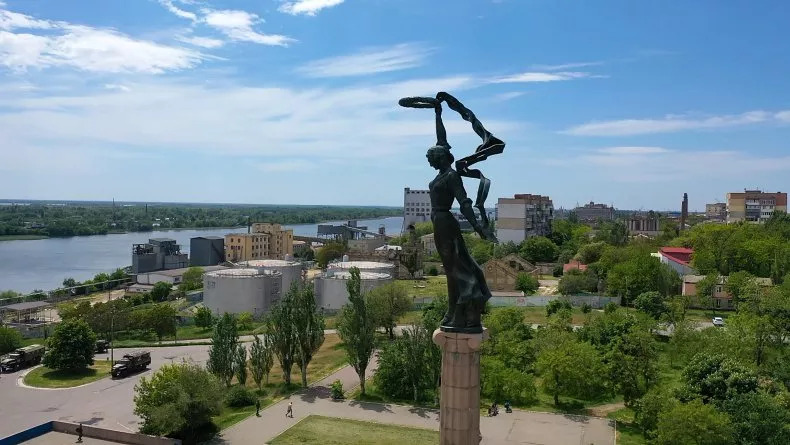On Saturday, officials in the Moscow-occupied city of Kherson in southern Ukraine issued Russian passports to local inhabitants for the very first time, according to press reports.

- According to Russia’s TASS news agency, 23 Kherson citizens acquired Russian passports during a ceremony enabled by a directive approved by Russian President Vladimir Putin in May.
- The time of the passport issue was planned with Russia Day in mind, according to Kherson officials.
“All of our Kherson locals want to get a passport and (Russian) citizenship as quickly as possible,” TASS cited the regional administration’s pro-Moscow leader Vladimir Saldo as saying. “It’s the start of a new era for us… It is the most significant document that a person may own in their lifetime,” Saldo told the Russian news agency RIA Novosti.
It is a public holiday on Sunday to commemorate Russia’s freedom from the former Soviet Union. It’s a time for many Russians to show their patriotic pride. At the outset of its February 24 attack, the Russian army took the majority of the Kherson area.
The Kremlin edict allowing local authorities to issue Russian passports to citizens also applied to the neighbouring Zaporizhzhia region, which Moscow’s soldiers partially control.
Ukraine called the action a “flagrant breach” of its territorial integrity and declared Putin’s edict “legally invalid.” The strategy is similar to Russia’s issue of passports to citizens of Ukrainian territories seized by Russian soldiers in 2014 – Crimea and much of the Donbas.
Russia grabbed Crimea and established self-styled “people’s republics” in Donetsk and Luhansk, acts that were widely denounced across the world. Ukraine now worries that the same thing is happening in regions taken by Russian soldiers during the current incursion. Once locals become Russians, the Kremlin may claim responsibility for “protecting” them.
There are allegations of Ukrainians in Kherson disobeying a Russian request to use roubles rather than the Ukrainian currency hryvnia. Melitopol is located in the south-eastern Zaporizhzhia area, which is currently mostly controlled by Russian forces, including Europe’s largest nuclear power facility. Russia has adopted the rouble and ordered schools to use the Russian curriculum in Crimea and Russian-held Donbas, the industrial area comprised of Donetsk and Luhansk.
It has also deposed local authorities designated by Kyiv and has done so again in freshly captured territories. The heavy battle rages on in the Donbas city of Severodonetsk. Serhiy Haidai, the recently appointed leader of Luhansk, claims Ukrainian forces are still in control of the city’s industrial zone, which includes the massive Azot chemical complex.
Other recent advances include:
- According to a southern Ukrainian governor, Ukraine’s army is running short on artillery ammunition as it confronts strong Russian bombardments. According to Vitaly Kim of the Mykolaiv area, the Russian army is far more powerful, and he has encouraged Ukraine’s Western partners to expedite the supply of lengthy weaponry and ammunition.

- Ursula von der Leyen, President of the European Commission, met with Ukrainian President Volodymyr Zelensky for the second attempt in Kyiv to debate Ukraine’s application for EU membership. “You have done a lot to enhance the rule of law,” she remarked, “because there is still a need for changes to be executed, such as fighting corruption.” She stated that the EU would determine in the coming weeks whether Ukraine must be granted candidate status, the next stage in the lengthy process of becoming a member of the EU.
- According to UK military specialists, Russia is using massive anti-ship missiles in land operations against Ukraine, that are notoriously imprecise. They believe Russia has depleted its inventory of accurate nuclear warheads and other high-tech weaponry.













